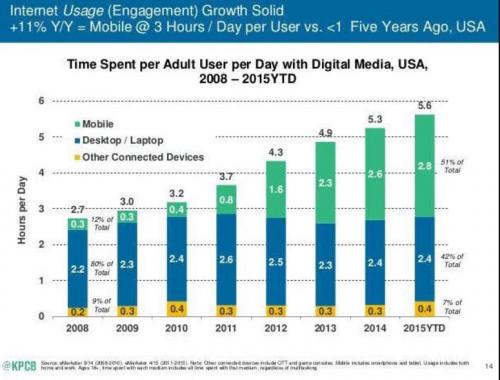Social media offers hope of achieving higher online social status without having to succeed financially in a winner-take-most economy.
I've often addressed the decline of social mobility and the addictive nature of social media, and recently I've entertained the crazy notion that the two dynamics are related.
Why Is Social Media So Toxic?
I have long held that the decline of social mobility--broad-based opportunities to get ahead financially and socially--is part of a larger dynamic I call social depression: the social decay resulting from economic stagnation and the decline of social mobility and financial security.
America's Social Depression Is Accelerating
The conventional explanation of social media's addictive hold is that it activates the human brain's reward circuits much like an addictive drug: in effect, we become addicted to being "liked" and to checking our phones hundreds of times a day to see if we received any "likes".
This phenomenon is known as FOMO, fear of missing out: fear of missing out on some emotion-stimulating "news" or a "like" from someone in our network.
The innate addictive appeal of social media is pretty clear, but is that all that's at work here?
Being social animals, humans naturally seek to identify their status in the pecking order and improve their position by whatever means are available as a way of increasing their reproductive success and their relative share of resources.
Traditional societies were bifurcated into a small elite and a much larger mass of commoners. As a general rule, social mobility was limited to those extraordinary commoners who were especially valuable to the ruling elite as soldiers, scribes, etc.
From its inception in the early 1800s, the American Dream was to acquire the "good life" via mass produced luxury goods. This has been the mainstay of the modern consumer economy, a consumption-based economy that became dependent on credit in the 20th century.
The downside of mass-produced luxury items (status symbols) is that in a credit-based economy, just about everyone can afford to own them. Thus just about anyone can qualify for a mobile phone plan that offers a status-symbol iPhone as part of the multi-year contract.
As a result, the upper classes have been forced to greater extremes in cost and scarcity to differentiate themselves from the masses. For example, now that exotic travel is a affordable to anyone with credit, travel has little status value, unless it's extremely costly or difficult to duplicate.
The same is true of the arts and other cultural status markers, along with the traditional markers such as yachts and homes.
As the underlying economy has stagnated, access to the upper class via earned income has decayed, and so commoners have been forced to find some other non-financial means to improve their social status.
Social media fits the bill perfectly: it's essentially free (since everyone has to pay for Internet service anyway) and the only "investment" is in time: time snapping and posting photos on Instagram and Facebook, time posting comments and links designed to attract tribal "likes" and so on.
A commoner with essentially zero social status economically can with enough effort become a "big shot" in some social media platform.
The bar is low enough to attract millions of players: a few dozen "likes" is still a potent reward to most people, as are having a couple hundred followers / readers.
Social media superstars with millions of followers on YouTube have cult-like groupies and all the other social status rewards of recognition and fame.
Social media offers hope of achieving higher online social status without having to succeed financially in a winner-take-most economy or having any of the conventional attributes of becoming famous: physical beauty, extraordinary talent, etc. These attributes are of course helpful in attracting a social media following, but thet are not essential.
As a result, everyone wonders "how did so-and-so get hundreds of thousands of followers?" The answer varies, of course: a viral video, a high level of marketing moxie, an engaging style, charismatic presence on camera, a knack for something others admire, etc.
If we understand social media as a new and accessible way to improve our unremarkable social status, its tremendous grip becomes less of a mystery.
Of related interest:
This essay was drawn from Musings Report 13. The Musings Reports are emailed weekly to major contributors, subscribers and patrons.
Recent interviews:
NOTE: Contributions/subscriptions are acknowledged in the order received. Your name and email remain confidential and will not be given to any other individual, company or agency.
Thank you, Keith B. ($50), for your magnificently generous contribution to this site -- I am greatly honored by your steadfast support and readership.
| |
Thank you, Eugene Rex J. ($5/month), for your superbly generous subscription to this site -- I am greatly honored by your steadfast support and readership.
|
























